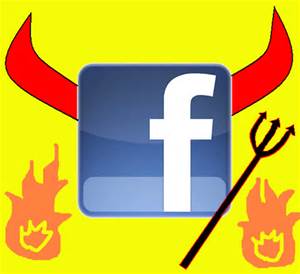
06 Jan Facebook is Not Your Friend
Research from the US, Great Britton, Germany, Belgium and Sweden all support the same conclusion: time spent on Facebook is a poor investment in your own happiness.
The “social media” phenomenon is not really new. Before Facebook came MySpace, Bebo and a few other online services aimed at accomplishing the same thing—keeping people connected across space and time.
Perhaps Facebook’s greatest innovation was to call members of one’s social network “friends”, making it seem much warmer and friendly to potential users. After all, who would not want to be invited to be someone’s friend?
Facebook, which began as an online means of tracking students living in Harvard dorms, has risen to the top of the social networking heap. It claims 1.35 monthly active users worldwide, 72% of all adults with internet access, averaging 21 minutes a day. 152 million people in the US and Canada are reported to use it daily. Many individuals are on Facebook several hours each day looking for interesting tidbits about others’ personal lives or checking on the status of their hundreds of “friends”.
But it turns out that time is not the only cost of frequent use; researchers find that self-esteem, hope and genuine human connection suffer as well. University researchers in Michigan and Belgium conducted a study which showed that turning to Facebook for social contact actually made one feel worse, rather than better. One the other hand, when those same individuals made direct contact with another human being they reported more positive emotions afterward.
Other social scientists presented research in Germany after carefully monitoring 584 Facebook users in the US and Germany, most of whom were in their 20’s. They reported that envy was the emotion most commonly aroused by Facebook usage. They concluded that time spent comparing their own lives against what others had posted made users feel inferior and jealous. Other European researchers report similar findings.
That’s not much of an endorsement for a product promising to connect people with their friends and promote happiness.
Several years ago I began a casual conversation with another traveler on a layover in Phoenix, who revealed that he developed advertising mechanisms for Facebook. I laughed and asked if he was the one responsible for my wife spending hours “working” on the phony farm associated with her Facebook page (FarmVille). He smiled and proudly proclaimed that he played a role in that. I feigned horror as I talked about the amount of time I had seen people spend trying to coax other users in participating with them in something that was not real.
The gentleman smiled as he explained that they create different activities and features on Facebook to keep users visiting and paying attention to the page as often and as long as possible. “Some of those ads make over a million dollars a day!” he exclaimed.
My fellow traveler leaned in close with a big sneer and said, emphatically, “Facebook is not your friend.”
Perhaps, as Charles Dickens said of the French Revolution, we are living in the best of times and the worst of times. We have tremendous resources available at our fingertips and may be tempted to use them foolishly. Here are a few ideas for keeping social media in its proper place.
- Determine, beforehand, how much time you will spend on social media. Set your timer and stick to it.
- Remember that people are posting their high points, the things they wish to show others, and that images are probably not representative of their real daily lives. Put a post-it on the corner of your monitor with the title “BragBoard” to help you keep things in perspective.
- Don’t post your frustrations with life. A lot of good people have lost jobs, friends and family relations by “venting”. Venting is for clothes dryers and volcanoes, not human beings. Don’t do it.
- When you think of friends, even when prompted by social media, take the time to reach out in meaningful way. Call, text, email or send a private message expressing your good will for them.
We don’t have to run from tools like Facebook, but it may take a concerted effort to keep them from running our lives.
